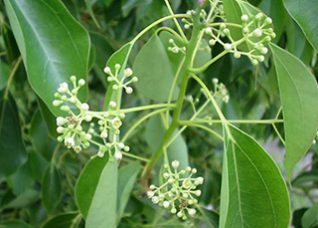
MinerAlert

MinerAlert
Cinnamomum camphora
Alcanfor

The oil extracted from the tree, although the leaves, root and stems are also used in traditional medicine. The production of natural camphor has been replaced mainly by industrial chemical synthesis employing compounds found in turpentine.
The essential oil is diluted in almond oil and applied externally to improve capillary circulation, and raise blood pressure. The vapors are inhaled as treatment for upper respiratory tract ailments.
Camphor oil preparations have been used both internally and externally for a variety of ailments, ranging from respiratory problems to rheumatic pain. The principal use of camphor is to reduce coughs. The plant contains substances, which upon contact with water, form a protective layer that covers the lining of the upper respiratory system, thus reducing mechanical irritation and preventing the cough reflex. Teas are sometimes ingested to remove secretions from the upper respiratory tract, but this form of application is not recommended, due to Camphor’s potential toxicity. The therapeutic dose closely approximates the toxic dose.
Safety/Precautions:
Before you decide to take any medicinal herb or herbal supplement, be sure to consult with your health care professional first. Avoid self-diagnosis and self-medication: Always be on the safe side!